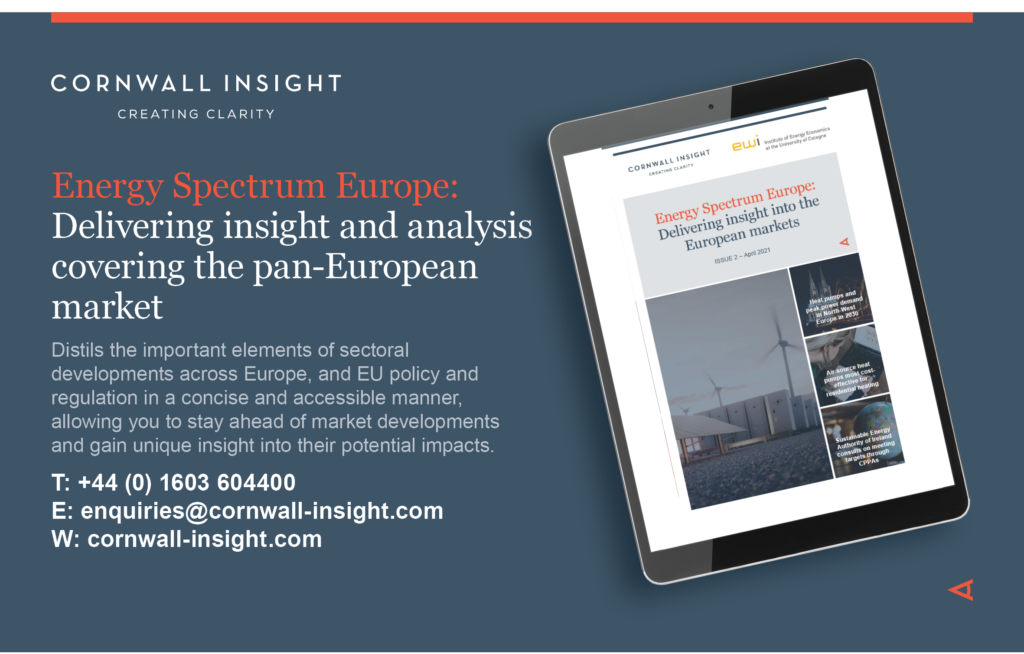In March Cornwall Insight launched its new Energy Spectrum Europe publication in collaboration with the Institute of Energy Economics at the University of Cologne (EWI). Below is an extract of our Energy Perspective article from our latest issue, written by Nils Namockel from EWI.
Heat pumps powered by green electricity are intended to drive the energy transition in the building sector. Heat pumps need more electricity especially at low temperatures. Potentially, this could increase the risk of power shortages in cold winters in the future. To avoid situations in which energy demand cannot be served, robust and well-coordinated expansion plans of Europe’s energy system are needed.
In North-West Europe, the electrification of end uses and replacement of dispatchable thermal generation with intermittent renewable generation may impact the resilience of the electricity system to winter cold spells. This challenge has become a reality now that the historical over-capacity in certain countries has receded (e.g. in France or Belgium). ENTSO-E analysis shows that in the event of a cold spell, Belgium and France would have risked supply shortages this past winter. By 2022-2023, RTE estimates that there is almost 100% probability that a 2012-type cold spell would lead to Loss of Load in France.
The study “2030 Peak Power Demand in North-West Europe“, conducted by the Institute of Energy Economics at the University of Cologne (EWI) and the French consulting firm E-CUBE Strategy Consultants, examines how the power system in Germany, France, Denmark, and the Benelux could react to possible cold spells in 2030. The study considers three scenarios for electricity demand on behalf of the French energy supplier ENGIE. These scenarios are based on different degrees of electrification in the building and transport sectors. The result: at very low temperatures the risk of gaps in power supply increases by the year 2030.


